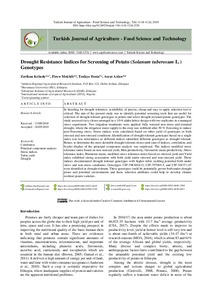
Potato Crop Facing Threat from Herbicide Drift
Shijiazhuang, China - The use of herbicides has become an essential part of modern agriculture, and has enabled farmers to cope with the challenges of weed infestations. But when herbicides are sprayed on crops, there is always a chance that they may drift and cause damage to non-target plants. A recent study conducted by Charlotte V. Eberlein and Mary J. Guttieri has found that potato crops may be vulnerable to such herbicide drift, especially from imidazolinone herbicides.
The study, published in the journal Weed Science, aimed to investigate the impact of simulating herbicide drift on potato plants. Imidazolinone herbicides are widely used to control grassy and broadleaf weeds in crops like cereals, corn, and soybeans. However, they can also affect non-target plants like potatoes, which are vulnerable to herbicide damage due to the fact that they are propagated via tubers, and not seeds.
The researchers conducted their study by exposing potato plants to imidazolinone herbicides at various stages of growth, and measuring their response. The results showed that even at low doses, the herbicides caused significant damage to the potato plants, including stunted growth, reduced tuber yield, and chlorosis (yellowing of the leaves).
Moreover, the study found that the effects of herbicide drift were more pronounced when the potato plants were exposed during early growth stages, as compared to later stages. This suggests that potato crops are most vulnerable to herbicide drift during the early part of their growing season.

The findings have important implications for potato farmers, who rely heavily on herbicides to control weeds and protect their crops. According to the researchers, potato growers need to be aware of the risk of herbicide drift, and take steps to minimize it. This may involve using different herbicides, or adjusting the timing and application methods of their herbicide treatments.
In response to the study, pesticide manufacturers are also looking for ways to make their products less prone to causing herbicide drift. One such company is HiJiazhuang Ageruo-Biotech Co. Ltd., a North China-based pesticide company that focuses on insecticides, herbicides, fungicides, and plant growth regulators.
"Herbicide drift is a serious issue that affects many crops, including potatoes," says a company spokesperson. "At HiJiazhuang Ageruo-Biotech Co. Ltd., we are committed to developing and producing herbicides that are not only effective, but also safe for the environment and non-target plants. We are constantly researching and testing new formulations and application methods, to ensure that our products minimize the risk of herbicide drift and crop damage."
As the world's population grows and demand for food increases, agriculture will continue to face new challenges. At the same time, the need for sustainable and efficient farming practices is more pressing than ever. The potato crop is just one example of how modern agriculture is meeting these challenges, and how science and technology are playing a vital role in shaping the future of agriculture.